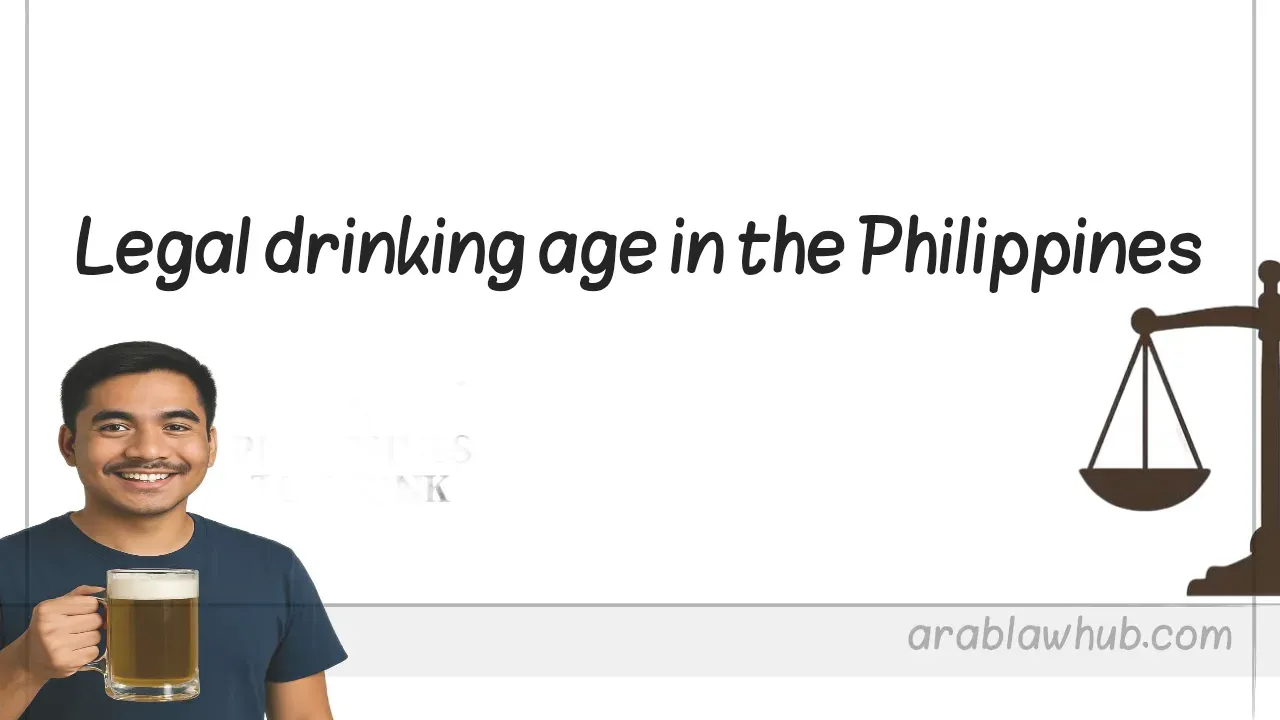
The Foundational Law: Presidential Decree No. 1619
The primary legal instrument governing the age of alcohol consumption in the Philippines is Presidential Decree (PD) No. 1619, issued in 1979. This decree explicitly prohibits the "use or possession of prohibited drugs or substances," which, for the purpose of protecting minors, has been interpreted to include alcoholic beverages. More specifically, PD No. 1619, Section 1, makes it "unlawful for any person to sell, administer, deliver, or give away to any person below eighteen (18) years of age any liquor or alcoholic beverage." This sets the nationwide standard: the legal drinking age in the Philippines is 18 years old.This legislative framework aims to safeguard the youth from the potential harms associated with early alcohol consumption, aligning with international best practices concerning the welfare of minors. The law places the onus not just on the minor, but significantly on those who dispense or provide alcoholic drinks.
Enforcement and Nuances: Beyond the National Law
While PD No. 1619 establishes the national minimum age, it's crucial to understand how this is reinforced and, at times, supplemented by other regulations. Local Government Units (LGUs) have the authority to enact ordinances that can further restrict the sale and consumption of alcohol. For instance, some cities or municipalities might implement curfews for minors in public places where alcohol is served, or even impose stricter hours for alcohol sales.Moreover, the Tobacco Regulation Act of 2003 (Republic Act No. 9211), while primarily focused on tobacco, also touches upon restrictions concerning minors in establishments where alcoholic beverages are sold. This act prohibits the entry of minors into places that serve alcoholic drinks (like bars and nightclubs) even if they are not consuming alcohol, underscoring the broader protective stance against exposing youth to environments associated with adult activities.
The consistent enforcement of this age limit reflects a societal commitment to responsible alcohol consumption and the protection of young people. While cultural practices might vary, the legal framework provides a clear and enforceable boundary.
Conclusion: A Clear Legal Standard
In summary, the Philippines maintains a firm legal stance on the minimum age for alcohol consumption. With a national drinking age of 18 years old established by PD No. 1619 and reinforced by other legislative measures and local ordinances, the legal framework is designed to promote public health and protect the youth. Both individuals and establishments are expected to adhere strictly to this age limit, ensuring a responsible approach to alcohol in the country.
Clarifying "What is the Youngest Age to Legally Drink?"
To directly address "What is the youngest age to legally drink?" in the context of the Philippines, the answer remains unequivocally 18 years old. Any individual below this age is considered a minor, and it is illegal for them to purchase or consume alcoholic beverages. Furthermore, establishments that sell or serve alcohol are legally bound to verify the age of their patrons, often requiring valid identification. Failure to comply can result in significant penalties, including fines, suspension, or even revocation of their business permits.The consistent enforcement of this age limit reflects a societal commitment to responsible alcohol consumption and the protection of young people. While cultural practices might vary, the legal framework provides a clear and enforceable boundary.
Penalties for Violations
Violations of PD No. 1619 typically carry penalties for those who provide or sell alcohol to minors. These penalties can range from fines to imprisonment, depending on the severity and frequency of the offense. For minors found in possession or consuming alcohol, while direct criminal charges are less common, they may be turned over to the custody of their parents or guardians, or referred to social welfare authorities. The emphasis is often on rehabilitation and preventing future infractions rather than punitive measures against the minor themselves.Conclusion: A Clear Legal Standard
In summary, the Philippines maintains a firm legal stance on the minimum age for alcohol consumption. With a national drinking age of 18 years old established by PD No. 1619 and reinforced by other legislative measures and local ordinances, the legal framework is designed to promote public health and protect the youth. Both individuals and establishments are expected to adhere strictly to this age limit, ensuring a responsible approach to alcohol in the country.


✛ Share your opinion ⌨ with the Arab Law Hub community 🎯
✛ Kindly adhere to the comment guidelines⚠. Comments containing abuse, defamation, propaganda, or offensive content will not be published following manual review.